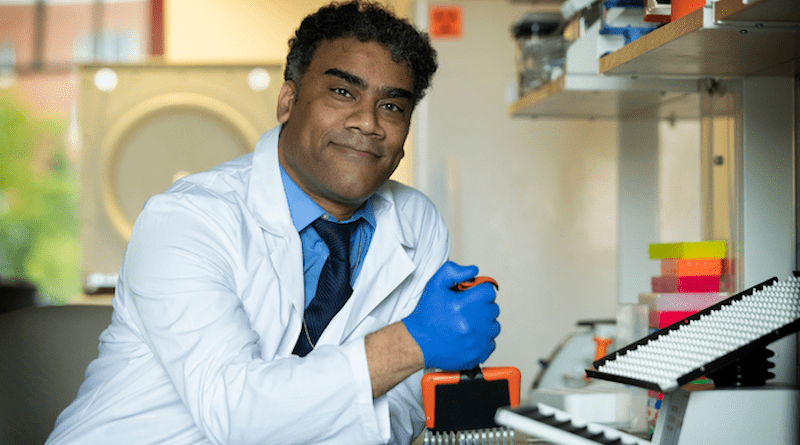Saving Kids From Dangerous Infections With An Amoeba
Innovative efforts at the University of Virginia School of Medicine to use a harmless amoeba to protect children from dangerous infections has won critical financial support from The Hartwell Foundation.
The Hartwell Foundation, which supports early-stage, cutting-edge biomedical research to benefit children of the United States, will provide UVA researcher Shannon Moonah, MD, $100,000 each year for three years. The funds will support his effort to engineer an amoeba – a single-celled organism – to deliver antibodies that can prevent and treat potentially deadly C. difficile infections in young children.
“New options are needed for C. difficile – there is no vaccine to protect at-risk children, and treatments for severe disease are suboptimal. Cell-based therapies like amoeba hold the promise of safe and effective drug delivery systems,” said Moonah, a physician-scientist in UVA’s Division of Infectious Diseases and International Health. “I am beyond grateful for the generous support of The Hartwell Foundation to help develop this novel approach.”
“We are delighted to have this vitally important research honored by The Hartwell foundation,” said Melur “Ram” Ramasubramanian, UVA vice president for research. “Shannon Moonah is a great example of the innovative and exciting biomedical researchers at UVA.”
About C. Difficile
C. difficile strikes 24,000 children in the United States each year, and many more around the world. The number of U.S. cases is growing, prompting the federal Centers for Disease Control and Prevention to classify C. difficile as an immediate public health threat that requires aggressive action. The infection causes severe diarrhea and is especially dangerous to children with health conditions such as cancer, bowel diseases and cystic fibrosis.
C. difficile infections are typically treated with antibiotics, but children who contract the infections offer suffer repeated bouts. For some, it can become incurable, requiring the removal of the large intestine to prevent death.
Moonah, however, aims to protect children from becoming so terribly sick. He would do that by genetically engineering a single-celled amoeba often found in the gut called “Entamoeba.” Entamoeba is a parasite, but Moonah aims to use gene editing to turn it into a powerful ally against C. difficile.
Moonah plans to introduce a harmless form of Entamoeba into the intestine in order to deliver directly specific antibodies to inhibit damaging toxins produced by C. difficile. If his innovation works, this would be the first time an amoeba or other protozoan had been genetically engineered to deliver a treatment this way.
Ultimately, Moonah aims to turn his “protozoan technology and drug delivery system” into a platform used routinely to deliver a wide range of drugs to battle gut problems in young children. The strategy could offer many benefits, he says, including lessening antibiotic use amid the growing problem of antibiotic resistance.
“If successful, there will be many potential applications to treat other intestinal diseases,” Moonah said. “The burden of C. difficile infection is a severe problem, and I am excited for the opportunity to help find new solutions that will lead to healthy children.”

